Relationship between the onset of dementia and Parkinson’s disease and the intestinal environment Part 2
Oxidative stress is known to be involved in the development of many diseases.
In recent years, it has become clear that
various metabolites produced by intestinal bacteria transcend the intestinal tract and
affect various organ functions of the host.
Oxidative stress increases
due to deterioration of diet and lifestyle, psychological and physical stress, and aging.
As a result, reactive oxygen species cause oxidative damage to DNA and proteins,
inducing cardiovascular disease, cancer, diabetes, and neurodegenerative diseases.
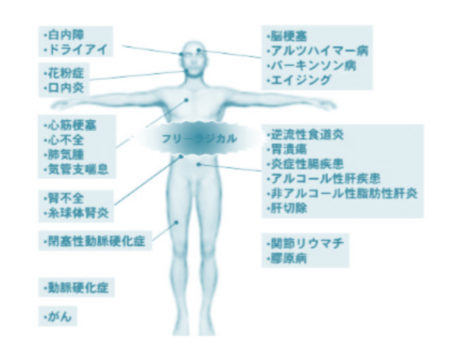
Reactive oxygen species (free radicals) are “bad guys that make the body rust”,
but they also have useful functions,
such as helping to produce hormones and
annihilating the enemy when they are released from white blood cells when foreign enemies invade.
However, when it occurs in large quantities,
it oxidizes lipids such as cholesterol and triglycerides
to produce a harmful substance called lipid peroxide,
which damages and destroys cell membranes and DNA.
When this lipid peroxide increases in the cell membrane of brain cells,
the protein “amyloid β peptide“, which is said to cause Alzheimer’s disease,
tends to accumulate on the surface of brain cells.
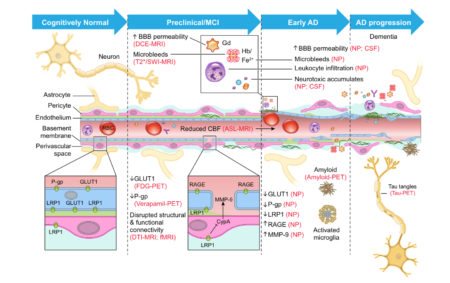
Parkinson’s disease is caused by
abnormal aggregation of α-synuclein aggregates called Lewy bodies
in dopamine-producing cells in the substantia nigra of the midbrain.
It has been shown that α-synuclein aggregates may originate from the enteric plexus and
ascend to the midbrain substantia nigra.
α-Synuclein aggregates, like prions,
have been shown to misaggregate normal α-synuclein and propagate abnormalities.
In patients with Parkinson’s disease,
α-synuclein aggregates ascend from the dorsal vagus nucleus to the mesencephalic substantia nigra.
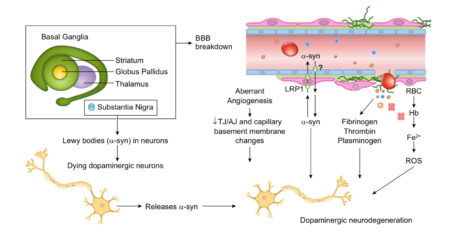
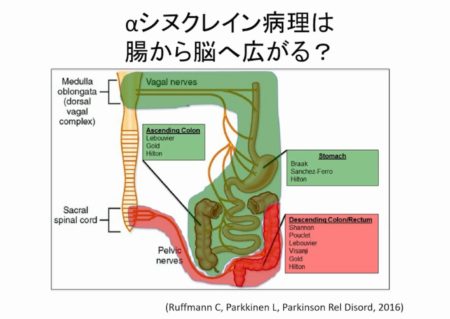
Constipation,
REM sleep behavior disorder, and
depression
are known to occur
20, 10, and 5 years before the onset of motor symptoms in Parkinson’s disease, respectively.
This is consistent with the ascending phenomenon of α-synuclein aggregates
from the dorsal vagus nucleus to the locus coeruleus.
In addition, it is known that α-synuclein aggregates are frequently accumulated
in the enteric plexus of Parkinson’s disease patients.
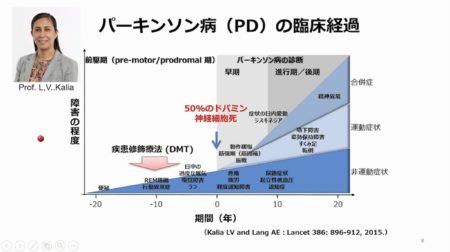
In this way, if the condition of the intestines is good,
you can maintain your health and prevent aging.
A healthy gut leads to a healthy brain,
which is effective in preventing dementia and Parkinson’s disease.
In our clinic,
NMN (nicotinamide mononucleotide) infusion therapy restores
the cell level, epigenome level, and mitochondrial level via sirtuin enzymes,
hydrogen gas inhalation therapy inactivates reactive oxygen species, and
human mesenchymal stem cell culture supernatant therapy suppresses immune abnormalities.
By adjusting the intestinal environment and repairing nerve cells in our therapy,
it is expected to be effective against cranial nerve disorders
such as dementia and Parkinson’s disease.

